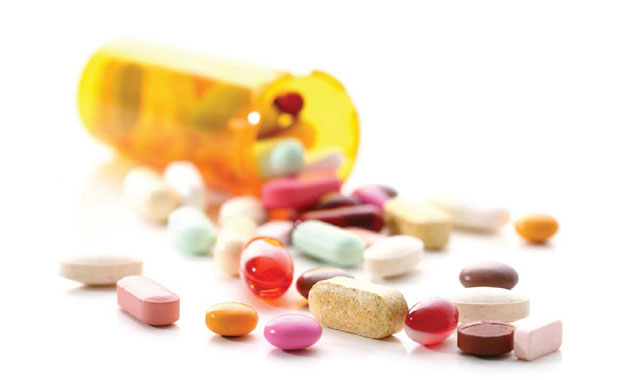
Taking them for every little ache
Okay, we get it. Headaches are unbearable but painkillers are potent meds that might do you more damage than you can imagine. “These are powerful drugs. If your pain is mild or moderate, there are lots of non-drug alternatives that you might want to consider first, such as rest, or hot and cold therapies,” says Martin Hoffman, chief of physical medicine and rehabilitation at the Veterans’ Administration Northern California Health Care System. He adds that these not-so-harmless meds block the production of prostaglandins, which trigger pain and inflammation when cells are damaged, concluding that they, in fact, make you more susceptible to pain. Research also shows that yoga and meditation can ease muscle tension and even change the way the brain responds to pain from migraines, arthritis and other chronic conditions.
7 tips to help you stop smoking for good
Double dipping
You’ve got a miserable cough. Maybe even flu and cold. So you take a multi-symptom product and down a painkiller to tame your aching body. In a 2011 study, nearly half the participants doubled their dosage of pain relievers and put themselves at risk of an overdose. “Many multi-symptom cold and flu products already have pain relievers in them. So, it’s important to be cautious,” says Deborah Pasko, director of Medication Safety and Quality at the American Society of Health-System Pharmacists. A good rule to stick with — since every medication comes with risks and side-effects, only take what you need to address your current symptoms. For instance, if your cough is dampening your spirits, grab the cough syrup and forego all other meds.
Assuming only heavy-users are at risk
Experts have known for years that using pain meds can increase a person’s risk of heart attack and stroke. Only recently, however, the Food and Drug Administration warned that the risk can spike as early as the first week that a person starts using the drug. Another knockout discovery — you’re vulnerable even if they don’t have heart disease or any risk factors for it. A report published in 2013 revealed that taking just a bit more than the recommended dose for a period of several days can cause serious liver damage and possibly death. “The goal with any of these is to take the lowest effective dose for the shortest amount of time possible,” recommends Jennifer L Bacci, assistant professor in the department of pharmacy at the University of Washington.
Taking pain relievers regularly if you’re trying to conceive
Developing research suggests that painkillers and anti-inflammatories can significantly inhibit ovulation. After just 10 days, 75% of female participants in a 2015 study, who took painkillers habitually, did not release an egg, as compared to 100% of those who took a placebo. 90% of those who took the meds didn’t ovulate. “Pain relievers inhibit prostaglandin release, which is a critical part of egg release. So, the thinking is that they can interfere with the release of the egg from the ovary,” says Serena H Chen, director of the division of reproductive endocrinology at St Barnabas Medical Centre in Livingston, NJ. The good news is that the issue appears to resolve quickly once the drugs are stopped.
Rushing to reduce a fever
“The sole fact that you have a fever of a 100.5 degrees fahrenheit isn’t reason to take brufen or acetaminophen. Fever is your body’s natural response to some kind of illness and that in itself is not a bad thing,” says Pasko. Once you get above 101, however, or if you become seriously achy and miserable before then, these medications can be helpful but that too, in proportion and minimal doses. And if a fever goes to 103 or higher, contact a physician. Some of these meds and other measures might be mandatory to avoid a seizure (especially in children) and a high fever could be a sign of serious illness or infection, but do not take these meds without a green flag from your doctor.
Consuming them before big workouts
To some extent, pain meds are a big help for patients working through pain that often comes with physical therapy. But if you’re regularly dosing up so you can push the exercise envelope, beware. If you’re sore from doing squats a day before, don’t pop a pain reliever and deal with it naturally. “Pain is a safety mechanism that tells you what is happening in your body,” says Pasko. “We don’t want patients taking medications prophylactically so they can do more and potentially injure themselves or worsen existing injuries.” Endurance athletes who take painkillers, even occasionally, should also make sure to drink plenty of fluids since these meds are known to harm the kidneys if the body becomes dehydrated.
Published in The Express Tribune, December 11th, 2015.
Like Life & Style on Facebook, follow @ETLifeandStyle on Twitter for the latest in fashion, gossip and entertainment.

1731570357-0/elon-musk-(1)1731570357-0-165x106.webp)
-(1)1717678110-0/Kendrick-(1)-(1)1717678110-0-165x106.webp)


1627551707-01732470336-0/ipiccy_image-(15)1627551707-01732470336-0-270x192.webp)
1732442095-0/Express-Tribune-(3)1732442095-0-270x192.webp)

1732437528-0/Untitled-design-(18)1732437528-0-270x192.webp)
1732434851-0/Untitled-design-(17)1732434851-0-270x192.webp)







COMMENTS
Comments are moderated and generally will be posted if they are on-topic and not abusive.
For more information, please see our Comments FAQ